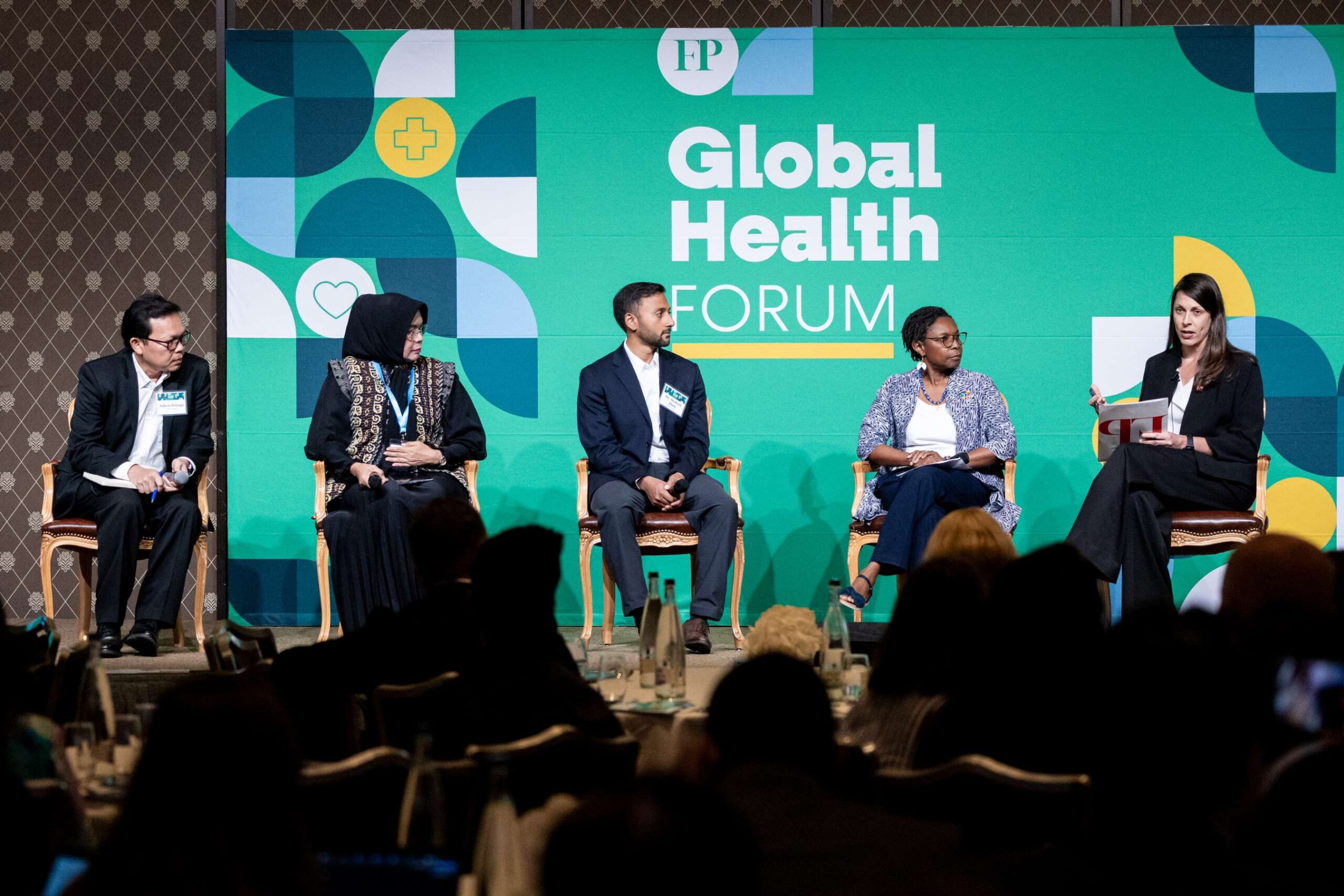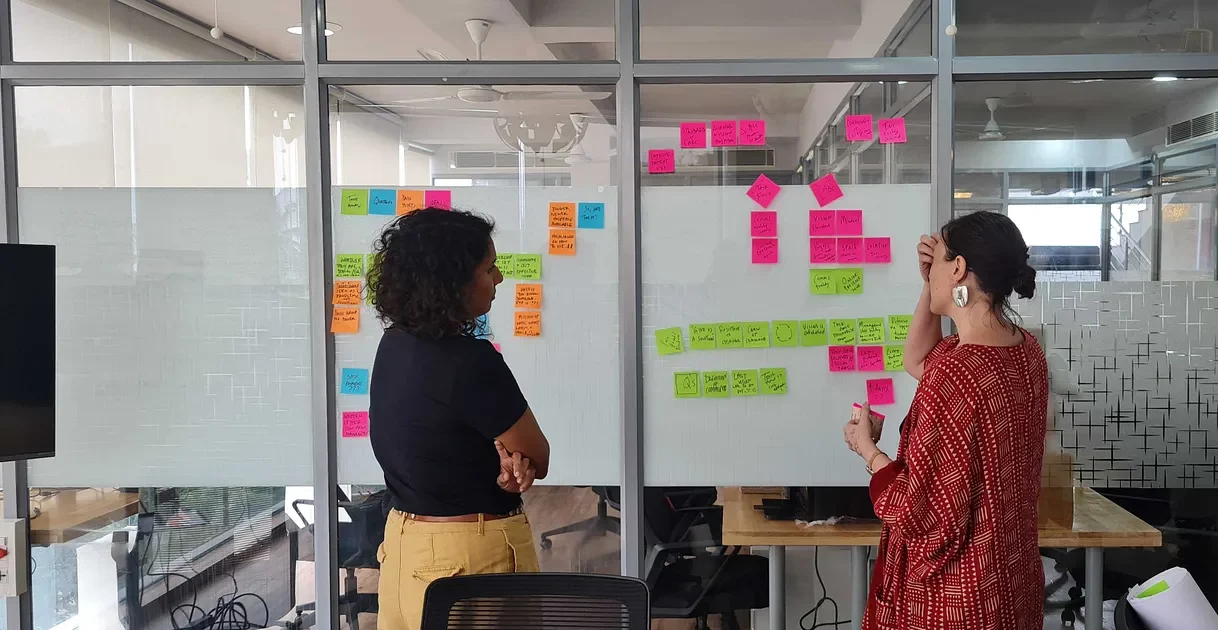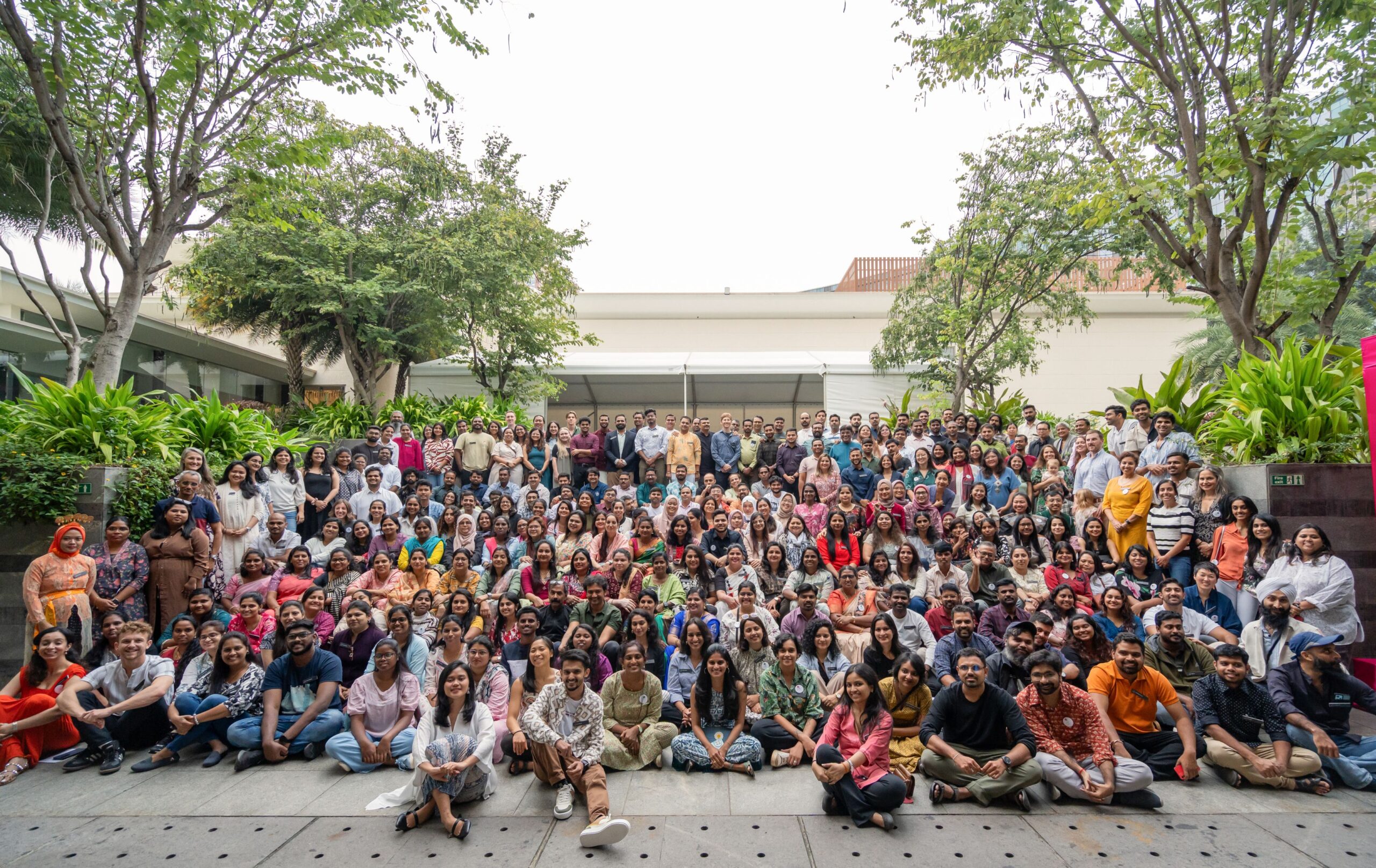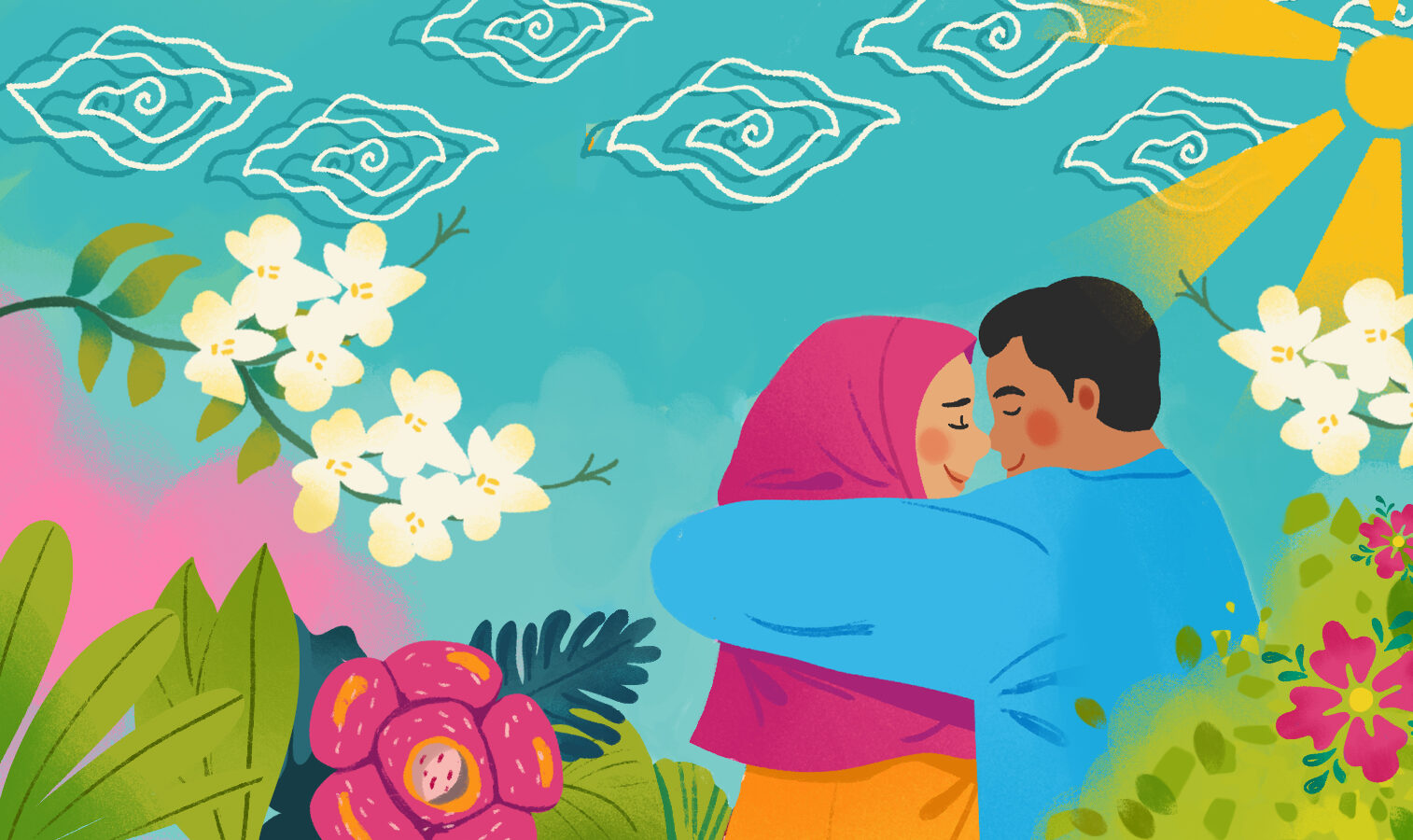
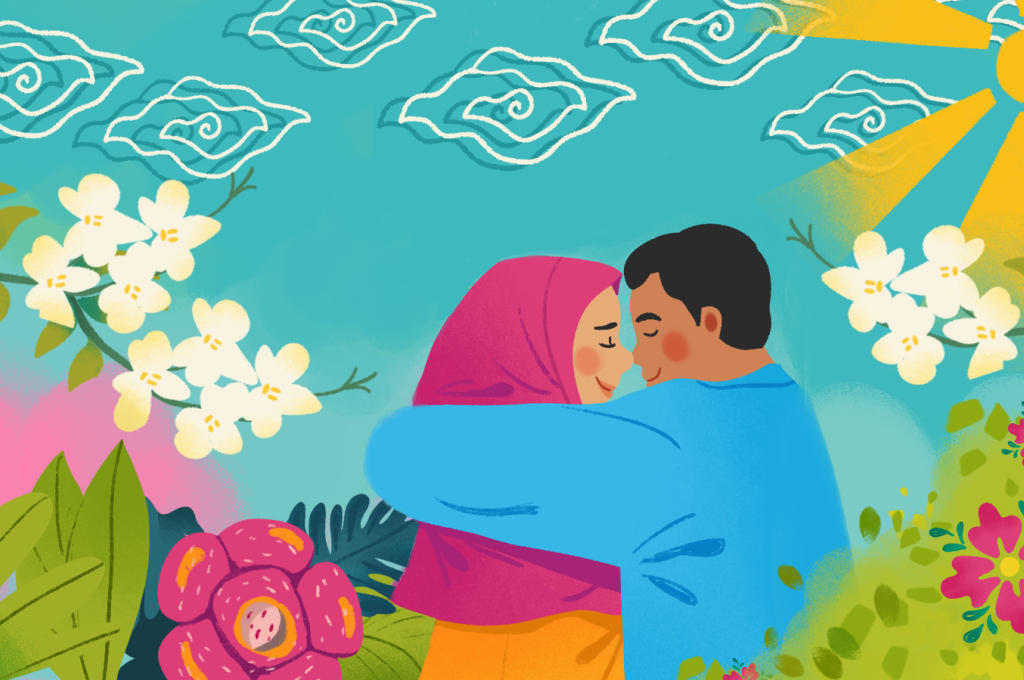
A delicate balance: A husband's journey navigating love, distance, and disability
This story is part of our 10-year anniversary celebration, honoring the many ways in which families, caregivers, communities, and health systems come together to care.
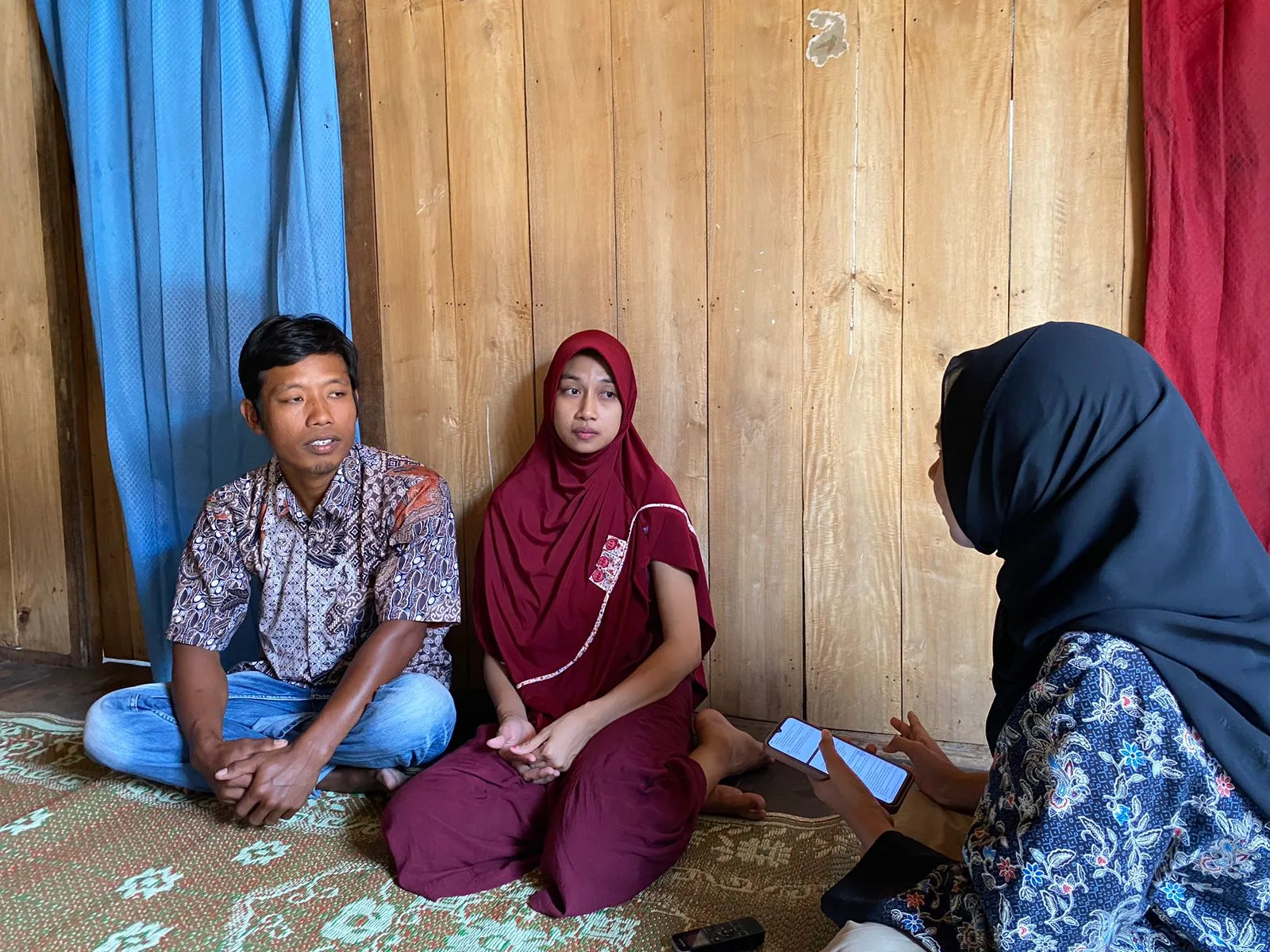
Nur Amin and his wife Ida Royani live in the village of Klitikan in Grobogan, Central Java, Indonesia with their two children and her parents. Amin’s days are spent finding a delicate balance between duty and love. Ida, who is deaf, sometimes needs his assistance when navigating interactions outside their close-knit community.
Being there for her, however, is complicated by the fact that his work on a coastal fish farm takes him more than two hours away to Semarang — a journey made even more challenging by limited public transportation. Erratic hours and long days means that he usually stays in Semarang for most of the week, rushing home whenever he gets a day off.
Amin reflects on how, during Ida’s pregnancy last year, he always made sure to accompany her to midwife appointments, even if it meant making more trips home and missing work. “I never let her go alone. If she didn’t understand what the doctor said, I wouldn’t either, since she couldn’t pass the information on.”
Though it’s not common for husbands in the community to take such an active role in their wife’s pregnancies, Amin reiterates that he’d do it all over again.
“For me, it’s an obligation I enjoy the most. Especially because Ida has a disability, I want to make sure she gets the right information and support throughout her journey of becoming a mother.”
Despite the rising transportation costs, he continues to make every effort to return home regularly for their one-year-old son’s health checkups. Whenever he’s home he also attends the pregnancy and toddler classes provided at the posyandu (integrated health post), which are supported by Noora Health. Amin highlights how the classes are especially useful in helping him and his wife understand how to best care for their baby. “In the last class, they advised us not to use flavor enhancing powders when cooking vegetables, so we’ve cut down on it. We were also giving our son instant porridge because we thought it was good for him and because it’s easier to prepare. But in the session we learnt that too much instant food isn’t good for babies. So, we started giving him soft rice that’s been mashed. Now that our child is older, we give him slightly firmer rice to help practice chewing.”
The distance between work and home, however, feels particularly overwhelming when there’s a last minute notification for a check-up or immunization. “Juggling so many things, sometimes I forget the dates and can’t make it back home. In these moments, I’m lucky to have friends and relatives I can lean on for assistance.”
Amin admits that fatherhood hasn’t been easy. When he’s away and Ida is home alone with the children, he worries that she might not hear them crying or if they’ve hurt themselves playing. Communicating with Ida over the phone is complicated as well. “When I call her, she can’t hear it ring, so I’ve set it to vibrate. If it vibrates, she can feel it. It also has to be a video call, otherwise, she might not understand. On WhatsApp, she prefers communicating mostly with emoticons.”
Amid this weight of responsibilities, there’s one constant joy in Amin’s life — coming home. “When I get home and see my wife and children, the fatigue seems to disappear. It feels good because the most important thing is to get home and see that my family is healthy and happy,” he shares.
A special thanks to Yenuarizki Soedjoko and Seftia Diah for bringing this story to life, and to M. Ghossan Farros for the illustration.

